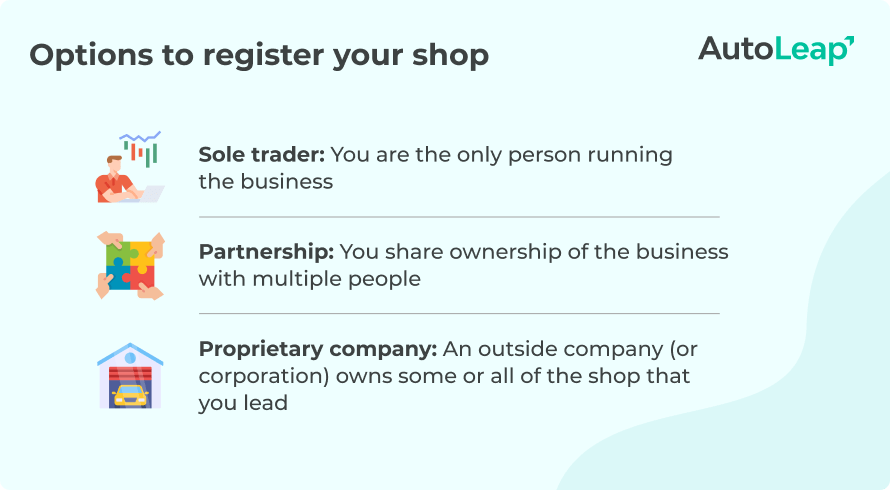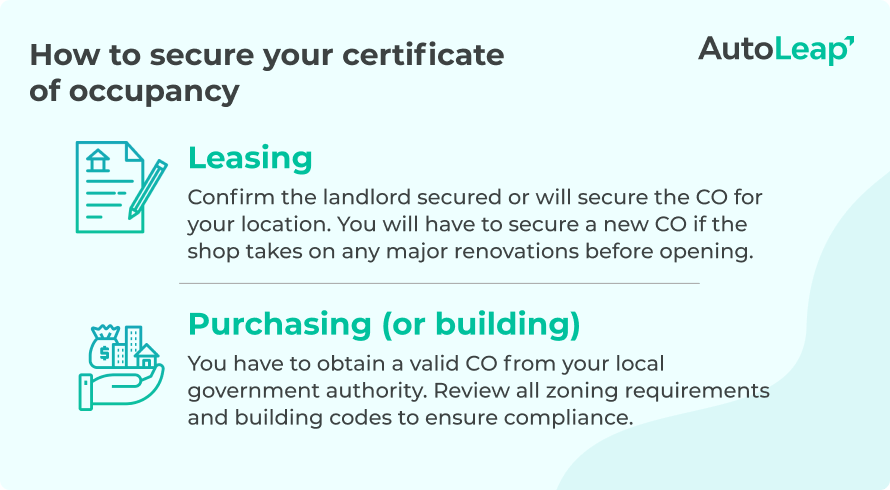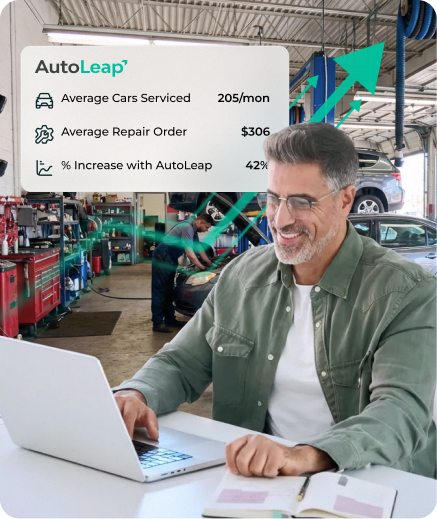Do you have a passion for cars? Are you a lifelong entrepreneur? Starting your own auto repair business might be for you!
But are you asking yourself, “what permits do I need to open a mechanic shop”? We’re here to help! Let’s cover what you need.
Registering your business
Schedule a free demo today!

Boost your shop sales

Simplify shop management

Empower your technicians

You first need to register your business as one of three entities:
- Sole trader: As the name suggests, you are the only member running the business as a sole proprietor.
- Partnership: This term means you share ownership between parties.
- Proprietary company: A proprietary company or an LLC is separate from its owner. With this option, you may have limited personal liability if financial trouble or legal action occurs.
Necessary permits and licenses
You might feel overwhelmed by all the legal requirements for opening an auto repair business. But it’s simpler than you think!
We will walk you through the necessary automotive business licenses and permits on both a state and local level.
- State licenses: Depending on your state, the requirements for a license may differ. Make sure you follow the terms to get formal approval for your business.
- Local licenses: These requirements will vary by state, but it’s important to check that you aren’t missing potential requirements.
- Certifications: Your business is only as good as your employees. Certifications for your technicians can take your shop’s productivity to the next level.
- General compliance: Upheld by the state, mechanic shops need to comply with certain safety regulations.
For information about local licenses and permits:
- Check with your town, city, or county clerk’s office
- Visit one of the local associations listed in the US Small Business Associations directory of local business resources.
What is a business license (and how to apply)
Shopify defines a business license as “granting the owner the right to start and run a particular type of business in the city, county, state, or country that issues it.”
Your shop will require a specialized vehicle repair business license to run as a compliant business in the state. To legally operate, your repair shop must display its license number and certificate of approved premises.
You must also pay a processing and application fee for business licenses. They must be renewed before expiring and may only be valid for a certain number of years, depending on the state where you obtained them.
Before applying, you must also meet several prerequisites depending on the state (or local area). Proof of certification is one requirement. Additionally, you will have to share documentation for taxes.
Employee certifications to consider
You might wonder: “Do you need a license to work as a mechanic?” Yes, you do! You must meet the proper qualifications, just like any technicians you hire.
First, you will have to classify your business. Depending on where you’re located, there will be several classifications to choose from. Then, you must complete formal training and meet the proper requirements to become certified as a motor vehicle repairer.
These requirements are straightforward. You must fill out an application, evidence that you are eligible, and pay a processing fee.
How you can secure a certificate of occupancy
You need a Certificate of Occupancy to meet zoning requirements and open your mechanic shop.
So, how does your shop obtain a Certificate of Occupancy? The process is straightforward! You can get your COA from the zoning or regulatory office in your respective city or county. But it depends on whether you lease a garage, purchase a shop, or build on location.
Here is how to secure your COA for those different options.

Securing a valid shop premises
Are you ready to secure a business license for your mechanic shop? You should ensure that your facilities are permitted and satisfy the essential requirements.
Your mechanic shop may need to follow state regulations before receiving approval.
General compliance tips
Your mechanic shop may need to follow regulations, enforced at the state level, before approval. These consist of:
- Environmental: It’s critical to ensure your shop opening won’t affect the environment in your area. Depending on where you live, these rules will vary. Two primary concerns include your compliance with safety and disposal regulations. Make sure your shop has met all requirements for how you handle hazardous materials, such as car batteries and motor oil.
- Health and safety: Prioritize the safety of both your clients and employees. Obtain workers’ compensation insurance for your staff to ensure you’ll have coverage for any workplace accidents.
Free Shop Handbook eBook
Discover the essential steps to create a compliant and effective Shop Handbook with our comprehensive eBook.
Tax registration process

To ensure compliance with tax regulations, the following documents are essential:
- Services and products registration for taxes: Your shop will need to register and pay taxes on the services and products your business provides.
- Tax registration for payroll: Registering for payroll taxes is necessary if you intend to expand your workforce. This registration enables the state to collect income tax from your employees’ salaries.
- Fringe benefits tax registration: By registering for Fringe Benefits Tax (FBT), you can accurately report and pay taxes on various employee benefits offered by your business. Employers often claim deductions on these taxes as part of their income tax obligations.
Understanding your federal employer identification number
Your Federal Employer Identification Number (FEIN) is a unique nine-digit number used to identify the company with the Internal Revenue Service (IRS). Other descriptive terms include Employer Identification Number, EIN, or Federal Tax ID Number.
Any company with workers forms a corporation, partnership, or, in many situations, an LLC must secure an EIN.
Investing in insurance
Imagine one of your employees sustains an injury while working on a customer’s vehicle. What would be the next step? Without insurance, you will be liable as the shop’s owner. This means that you will have to pay out of pocket whatever the damage is. That’s the fastest way to run out of business!
Insurance is crucial, given the inherent risk associated with working as a technician. Potential issues include public liability, worker injuries, and equipment damage. General liability insurance and workers’ compensation insurance are coverage plans you’ll need.
General liability insurance 101
General liability insurance covers essential liability protection. For instance, if you damage a customer’s vehicle by accident, this insurance would pay the costs. If one of your employees gets injured at work, worker’s compensation insurance will cover it.
Insurance can cover lost wages and medical costs if a person gets hurt or becomes ill while working. Additionally, it stops your employees from suing your company in court.
Final thoughts
Cutting through red tape can feel like a burden. But compliance with your shop’s permits and licenses is a vital ownership requirement! Beyond the paperwork, setting up a successful shop also involves tools to streamline your operations.
For instance, auto repair shop software can help you manage customer bookings and send digital invoices so you have more time to focus on growing your business.
Use the insights in this blog post to cover all your bases and set your shop up for long-term compliance.
Frequently Asked Questions
Do I need ASE certification to open a shop?
You don’t need ASE certification to open a shop, but getting certified can help your shop in many ways. Benefits include improved access to more affordable financing options.









